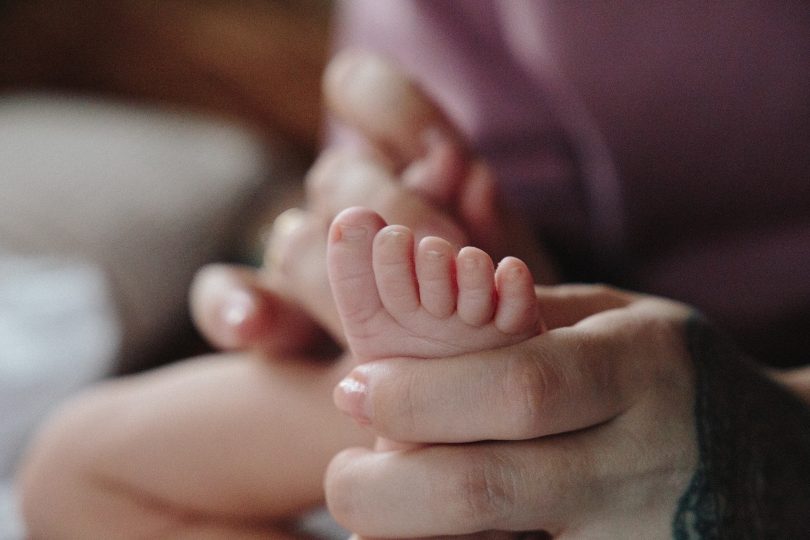
A new report suggests birth rates in the Yass Valley will drop despite population growth. Photo: Klara Kulikova.
Yass mothers have questioned the findings of a recent review of maternity services available in the regional NSW town.
Bec Duncan and Jasmin Jones, who have campaigned for several years for women to be able to give birth at Yass District Hospital, said the report data is flawed.
Both women gave birth by the side of Barton Highway while travelling to a Canberra hospital to give birth.
“You can drive a truck through the data they used,” said Ms Jones.
The Yass Maternity Clinical Services Plan, conducted by Southern NSW Local Health District (SNSWLHD), said a return of maternity services to Yass District Hospital was ‘unjustified’ based on the low number of births by Yass Valley women.
Maternity services were closed in Yass in 2004 “due to reduced demand for the services … ageing infrastructure and declining workforce availability,” according to SNSWLHD.
The report predicts there will be between 112-179 annual births by Yass Valley women by 2036. However, that’s fewer than the 187 births recorded in the region by the Australian Bureau of Statistics in 2018.
That number is based on the NSW Department of Planning and Environment’s prediction that the region will grow by 146 people, from 16,954 currently to 17,100 in 2041. However, Yass Valley Council’s Settlement Strategy predicts the population will grow to 27,726 by 2036.
“If NSW Health had any respect for regional communities, they’d use statistics that are accurate and defensible,” said Ms Duncan. “We are one of the fastest growing LGAs [local government areas] in NSW and in their report they expect us to believe we will have fewer births in 2036 than we do now?”
The report also lacks data from ACT Health on antenatal and postnatal care and births for Yass Valley women, despite many in the region – 72 per cent according to the report – attending Canberra hospitals for these services.
“They’ve only used data from 20 per cent of our women who birthed in NSW,” said Ms Jones. “Why haven’t they asked for this data?”
She is concerned more women are having caesarean births to manage their due date in Canberra hospitals.
“The data shows a higher caesarean rate above the national average, which is 29-30 per cent, and Yass Valley stats are showing 35 per cent,” said Ms Jones. “Maybe they have a higher caesarean rate in the ACT to manage the travel.”
Ms Jones and Ms Duncan said they will continue to campaign for birthing services at Yass District Hospital to avoid pregnant women having to travel to hospitals in Goulburn and Canberra.
The report’s recommendation to increase antenatal and postnatal care to pregnant women and new mums in Yass Valley by 20 hours per week as part of a 12-month trial is welcomed by the pair.
The increase will mean the service is available five days a week.
“We are pleased the SNSWLHD has finally agreed to increase prenatal and postnatal care to full-time in Yass,” said Ms Duncan. “This will save many trips along the dangerous Barton Highway for mums and newborns.”
Since the trial began in June, midwives have increased their home visits to new mums to weigh the babies, take blood for jaundice levels, provide feeding advice and assistance, and general checks for the mum and baby for up to 10 days after birth, according to Yass outreach midwife Liz Perks.
“These additional hours take into account the needs of women and families in surrounding communities and existing services to ensure women’s care can be provided in the right place at the right time,” said SNSWLHD chief executive Margaret Bennett.
Anna Davaris, who recently gave birth to son Harrison, praised the extra time provided to access the service in the Yass Valley.
“I have found the service really beneficial,” she said. “I definitely needed support along the way and to have a follow-up from Liz after I had Harrison was very reassuring.
“It has definitely been much easier with the extended hours, and much easier to make an appointment.”
The trial will run until June 2021 and then it will be reassessed.
Original Article published by Hannah Sparks on About Regional.











